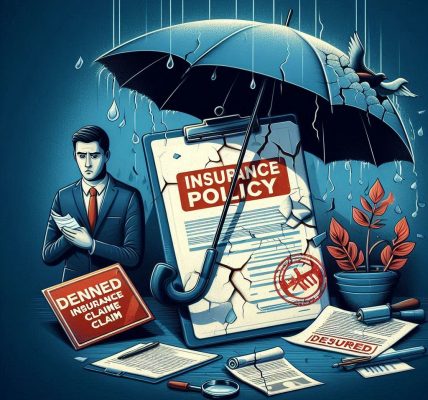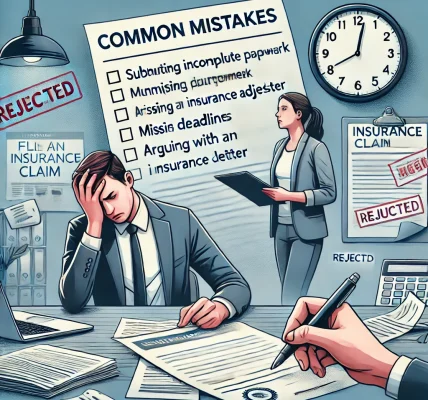Filing an insurance claim can be a complex process, and one of the key players in this process is the insurance adjuster. Understanding their role and how they handle claims can help policyholders navigate the process smoothly and ensure a fair settlement. This guide provides a detailed insight into the responsibilities of an insurance adjuster, what to expect during a claim, and how to interact with them effectively.
1. Who is an Insurance Adjuster?
An insurance adjuster, also known as a claims adjuster, is a professional responsible for assessing and evaluating insurance claims. Their primary job is to investigate the claim, determine the extent of the loss or damage, and recommend a fair settlement amount based on the policy coverage.
Types of Insurance Adjusters
- Company Adjusters (Staff Adjusters): Employed by insurance companies, they handle claims on behalf of the insurer.
- Independent Adjusters: Work on a contract basis for insurance companies and may handle multiple claims across different insurers.
- Public Adjusters: Hired by policyholders to help negotiate a fair claim settlement from the insurer.
2. The Role of an Insurance Adjuster in the Claim Process
Insurance adjusters play a crucial role in determining the outcome of your claim. Here’s how they typically process claims:
2.1 Initial Contact
- Once you file a claim, an adjuster is assigned to your case.
- They will contact you to schedule an inspection or discuss the details of the claim.
- Expect questions about the incident, damages, and any supporting documents you can provide.
2.2 Inspection and Investigation
- The adjuster will inspect the damage in person or through photos and videos.
- They may interview witnesses, review medical records (for injury claims), or analyze police reports.
- In some cases, they consult with specialists such as contractors, mechanics, or doctors to assess the claim.
2.3 Reviewing Policy Coverage
- The adjuster examines your policy to determine what is covered.
- They will check policy limits, deductibles, and any exclusions that may apply.
2.4 Estimating the Damage and Settlement Offer
- Based on their findings, the adjuster will estimate the cost of repairs, replacements, or medical expenses.
- They will then present a settlement offer, which is typically subject to negotiation.
2.5 Claim Negotiation and Resolution
- If you disagree with the initial offer, you can negotiate for a better settlement.
- The adjuster may require additional documentation or re-evaluate the claim before finalizing the payment.
- Once agreed upon, the claim is settled, and you receive the compensation.
3. What to Expect During the Claim Process
Filing a claim can be overwhelming, but understanding what to expect can ease the process:
3.1 Timelines and Delays
- Insurance companies have different processing times, but most claims take between a few weeks to a few months.
- Delays may occur if additional information is needed or if the claim involves high-value damages.
3.2 Adjuster’s Objectivity
- Adjusters work for the insurance company, so their goal is to settle the claim fairly but also cost-effectively for the insurer.
- It’s important to provide clear, accurate, and well-documented evidence to support your claim.
3.3 Communication and Updates
- Stay in touch with your adjuster and respond to any requests promptly.
- Keep copies of all correspondence, including emails, letters, and phone call summaries.
4. Tips for Dealing with an Insurance Adjuster
4.1 Be Prepared
- Have all necessary documents ready, including photos, receipts, repair estimates, and medical reports.
- Review your insurance policy to understand your coverage.
4.2 Stay Professional and Honest
- Always be honest in your statements and provide accurate information.
- Maintain a professional attitude to keep the process smooth and cooperative.
4.3 Don’t Accept the First Offer Immediately
- Initial settlement offers are often lower than what you may be entitled to.
- If you believe the offer is unfair, negotiate or seek a second opinion.
4.4 Seek Professional Help if Necessary
- If you feel your claim is undervalued, consider hiring a public adjuster to negotiate on your behalf.
- In extreme cases, legal assistance may be required if the insurer is uncooperative.
5. Common Challenges and How to Overcome Them
5.1 Low Settlement Offers
- If the payout is too low, ask the adjuster for a detailed explanation.
- Provide additional evidence or get an independent assessment.
5.2 Claim Delays
- Follow up regularly and escalate the issue if necessary.
- Keep a record of all communication to avoid miscommunication.
5.3 Denied Claims
- Request a written explanation for the denial.
- If you believe the denial is unfair, file an appeal or consult an expert.
6. Frequently Asked Questions (FAQs)
Q1: Can I request a different insurance adjuster?
Yes, if you believe the adjuster is biased or unprofessional, you can request a replacement from your insurer.
Q2: Can I negotiate the settlement amount?
Absolutely! You have the right to dispute and negotiate if you believe the settlement is too low.
Q3: What if I disagree with the adjuster’s assessment?
You can provide counter-evidence, seek an independent evaluation, or hire a public adjuster.
Q4: Should I hire a public adjuster?
If your claim is complex or involves a significant amount, a public adjuster can help maximize your settlement.
Q5: What happens if my claim is denied?
You can appeal the decision, provide additional proof, or seek legal help if necessary.
Final Thoughts
Understanding the role of an insurance adjuster and being well-prepared can significantly improve your claim experience. By knowing what to expect, maintaining good communication, and standing your ground during negotiations, you can ensure a fair and timely settlement.



